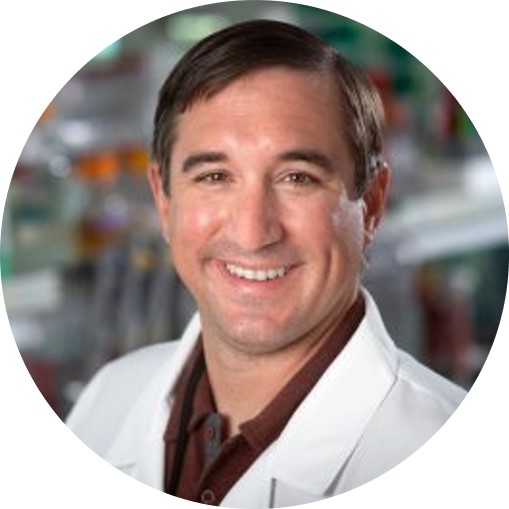Immunity

FH-Prof. Univ. Doz. Dr Ines Swoboda
FH Campus Wien, University of Applied Sciences, Biotechnology Section
Campus Vienna Biocenter, Vienna, Austria
>>> View and/or download conference session
Ines Swoboda graduated in Genetics in 1990 and obtained her PhD in 1995 at the University of Vienna. She was postdoctoral research fellow at the University of Melbourne (1995-1998) and at the Medical University of Vienna (1999-2003). In 2004 she received her Habilitation in Allergology. Her Habilitation thesis was awarded with the Kardinal-Innitzer-Prize for Human and Veterinary Medicine. In 2005 she established the research group of “Immune recognition” and in 2010 became Assistant Professor at the Medical University of Vienna. In 2011 she moved to the FH Campus Wien, where she is currently Professor of Immunology, teaching the subjects Virology, Immunology, Allergies & Autoimmune Diseases and Infection Biology to Molecular Biotechnology students. At the FH Campus Wien she established the research group of “Immunology” and since 2017 she is also head of the “Competence Center of Molecular Biotechnology”. In 2019 she was listed by the “ZukunftInstitut” as one of six “Future People” of the year.
After initial research in the field of Plant Molecular Biology studying the biological function of allergens, Ines Swoboda has been working in the field of Molecular Allergology for more than 20 years. Her research focuses on the analysis of the pathomechanisms of allergic diseases as well as the characterization of the disease eliciting molecules and the development of recombinant allergens for specific allergy diagnosis and for safe and efficient therapy of allergic patients.
Ines Swoboda is author on more than 130 scientific publications and is often invited as speaker at national and international conferences.
Author's key paper
Gal d 7 - the major allergen in primary chicken meat allergy.
Klug, C., Hemmer, W., Román-Carrasco, P., Focke-Tejkl, M., Quirce S., Boyano-Martínez, T., Gaubitzer, E., Wank, H. and Swoboda, I. (2020). Journal of Allergy and Clinical Immunology, 146(1): 169-179.

Professor JoAnne L Flynn, PhD
Distinguished Professor, Assistant Dean, Co-Director of Pitt/CMU MSTP
Department of Microbiology and Molecular Genetics
University of Pittsburgh School of Medicine, USA
>>> View and/or download conference session
JoAnne Flynn has a Bachelor of Science in Biochemistry, from the University of California at Davis and a PhD from University of California at Berkeley in Microbiology and Immunology. Dr Flynn’s first post-doc was with Dr Magdalene So at the Scripps Clinic Research Institute and then joined the lab of Dr Barry Bloom at Albert Einstein College of Medicine, as a Howard Hughes Research Associate, where she began her studies in tuberculosis. Dr Flynn joined the Department of Microbiology and Molecular Genetics at the University of Pittsburgh School of Medicine in 1994 and in 2019 was been awarded the title of Distinguished Professor. Dr. Flynn directs a NIH T32 Training Grant and has grants from NIH and the Bill and Melinda Gates Foundation. She was an Editor at Infection and Immunity from 2004-2014 and is a Section Editor for PLOS Pathogens and a member of the NIAID Board of Scientific Counselors. She was the 2018-19 President of the American Association of Immunologists, and is a Fellow of the American Academy of Microbiologists. She has published over 180 papers. Her research in tuberculosis is focused on immunology, host-pathogen interactions, vaccines, and drugs, and she has developed and used non-human primate models for tuberculosis research over the past 20 years. Dr Flynn’s research uses multiple cutting-edge tools and technologies to investigate the complexities of infection, with a particular focus on lung and lymph node granulomas.
Author's key paper
Prevention of tuberculosis in nonhuman primates following intravenous BCG immunization.
Darrah PA, Zeppa JJ, Maiello P, Hackney JA, Wadsworth MH, Hughes TK, Pokkali S, Swanson PA, Grant NL, Rodgers MA, Kamath M, Causgrove CM, Laddy DJ, Bonavia A, Casimiro D, Lin PL, Klein E, White AG, Scanga CA, Shalek AK, Roederer M, Flynn JL, Seder RA.
Nature, 2020. Jan;577(7788):95-102. doi: 10.1038/s41586-019-1817-8.

Professor Carola G. Vinuesa, LMS (MBBS), PhD, FFSc (RCPA), FAA
Professor of Immunology, Department of Immunology and Infectious Disease
John Curtin School of Medical Research, The Australian National University
Council Member, Australian Academy of Science
Director, Centre for Personalised Immunology, NHMRC Centre for Research Excellence
Director, China-Australia Centre for Personalised Immunology, Shanghai Renji Hospital, Jiaotong University
Advisory Professor, Shanghai Jiaotong University
Genomicist, Canberra Clinical Genomics, ACT Health – ANU Clinical Genomics Diagnostic Service
Centre for Personalised Immunology Website Lab Website
>>> View and/or download conference session
Carola Vinuesa obtained a medical degree at the University Autonoma of Madrid. She undertook clinical training in the UK and was awarded a PhD by the University of Birmingham (2000). From 2006 she is group leader at the Australian National University. She has been the recipient of a Viertel Fellowship, the Science Minister’s Prize for Life Scientist of the year (2008), the Gottschalk Medal of the Australian Academy of Sciences (2009), the Rammaciotti medal (2014) and the CSL Young Florey Medal (2015). In 2015, she was elected Fellow of the Australian Academy of Science. She has been recipient of two consecutive NHMRC Elizabeth Blackburn Fellowships (top biomedical fellowship applications, 2012 & 2017). She is co-director of the Centre for Personalised Immunology (CPI), an NHMRC Centre for Research Excellence and Director of the China Australia Centre of Personalised Immunology at Shanghai Renji Hospital.
Vinuesa has defined how antibody production by B cells reflects complex interactions with antigen-specific T follicular helper (TFH) cells within and outside germinal centers (GCs). Her team’s discovery of BCL6 function in TFH -cells established that TFH, rather than Th2-cells, provide help for B cells. Vinuesa also discovered that excess TFH-cell numbers or activity causes systemic autoimmunity. This was followed by the identification of “follicular regulatory T (TFR) cells”, a unique subset of regulatory T cells (Tregs) that modulates TFH-cell function and prevents the selection of B cells with rogue specificities. These discoveries are now being applied to autoimmunity, vaccination, elimination of HIV reservoirs, transplantation, immunodeficiency, cancer and allergies. Through her research program at the Centre for Personalised Immunology, Vinuesa has uncovered an important role of rare gene variants in human autoimmunity.

Dr Alexander David Barrow
Laboratory Head, Department of Microbiology & Immunology
University of Melbourne
The Peter Doherty Institute for Infection and Immunity
>>> View and/or download conference session
Dr Alexander Barrow, PhD (Bristol, UK) performed his post-doctoral training at the University of Cambridge and as a Marie Curie International Fellow in the lab of Marco Colonna at Washington University in St Louis School of Medicine. Alex is interested in how the immune system distinguishes malignant or virus-infected cells from normal healthy cells and much of this work has focused on identifying ligands for orphan receptors expressed by natural killer (NK) cells. Alex was also the first to show that NK cells express the activating NKp44 receptor that can sense growth factors over-expressed by malignant cells to activate the anti-tumour functions of NK cells. He has published in Cell, Nature Immunology, Journal of Clinical Investigation, Blood and Journal of Immunology and has contributed review articles for Current Opinion in Immunology, Immunological Reviews, Seminars in Immunology and Frontiers in Immunology. He has 26 papers and over 2400 citations and is a member of the international Siglec Nomenclature Group and peer reviewer for the Reactome database. Alex is currently an associate editor for Frontiers in Immunology and an editor for Pathogens. He is currently a mid-career researcher and newly appointed lab head and senior lecturer in immune-oncology in the Department of Microbiology and Immunology, University of Melbourne at the Peter Doherty Institute for Infection and Immunity. Alex is currently the lead chief investigator on a three year MRFF Research Acceleration project grant to study the role of NK cell ‘growth factor immune surveillance’ in brain cancer.
Author's key paper
Natural Killer Cells Control Tumor Growth by Sensing a Growth Factor.
Barrow AD, Edeling MA, Trifonov V, Luo J, Goyal P, Bohl B, Bando JK, Kim AH, Walker J, Andahazy M, Bugatti M, Melocchi L, Vermi W, Fremont DH, Cox S, Cella M, Schmedt C, Colonna M.
Cell. 2018 Jan 25;172(3):534-548.e19. doi: 10.1016/j.cell.2017.11.037.
Infection

Professor Anthony (Tony) Cunningham,
AO, FAHMS, MD, FRACP, FRCPA
Director, Centre for Virus Research,
The Westmead Institute for Medical Research (WIMR) & Australian Centre for HIV and Hepatitis Virology Research (ACH2)
Professor, Faculty of Medicine and Health, University of Sydney
>>> View and/or download conference session
Professor Cunningham is an infectious diseases physician, clinical virologist and scientist, well known internationally for his research on the immunobiology of HIV and herpesviruses, his work on vaccine development and trialling, especially for shingles and herpes, and as an antivirals expert. He has served on numerous international expert panels on HIV/HSV, antivirals and vaccines.
Professor Cunningham has previously worked at Stanford University, USA, built up the State Reference Laboratory in Virology and a state reference HIV laboratory at Westmead Hospital in the mid-1980s, before assuming directorship of WIMR in 1996.
In 2010 he was awarded Officer of the Order of Australia (AO) for ‘service to medicine, particularly in the field of viral research and through the development and leadership of medical and biomedical research’ and in 2015 was elected as an inaugural fellow of the Australian Academy of Health and Medical Sciences. Since stepping down from the WIMR director role in 2019 Professing Cunningham has continued his research on an NHMRC senior Investigator Grant and become immersed in COVID-19 research and other issues, including:
- A member of the NSW COVID-19 Vaccine Committee, the NSW Waratah COVID vaccines trial alliance and the national Vax4COVID trials alliance.
- A contributing author and lead author respectively: Papers on ‘The risk of COVID19 recurrence in Winter’ and ‘Vaccines for COVID19’ commissioned from the Australian Academies of Science and Health and Medical Science by the Chief Scientist of Australia for the Commonwealth Ministers of Health and Science;
- A member of the Safety Review Board for University of Queensland Phase 1 clinical trial of SARS-CoV-2 Sclamp vaccine and of the Seqirus global COVID Vaccines Advisory Committee setting up phase 2/3 trials.
Author's key paper
Efficacy of the herpes zoster subunit vaccine in adults 70 years of age or older
AL Cunningham, H Lal, M Kovac et al
New England Journal of Medicine 2016
Diversity of receptors binding HIV on dendritic cell subsets
Stuart G Turville, Paul U Cameron, Amanda Handley, George Lin, Stefan Pöhlmann, Robert W Doms, Anthony L Cunningham
Nature Immunology 2002

Dr Jason Rosch, PhD
Associate Member
St Jude Children's Research Hospital
Department of Infectious Diseases
>>> View and/or download conference session
Dr Rosch received his undergraduate degree from the College of Wooster and his doctoral degree in molecular microbiology and microbial pathogenesis from Washington University in St Louis. He continued his career as a postdoctoral fellow in the lab of Elaine Tuomanen at St Jude Children’s Research Hospital focusing on the pathogenesis of Streptococcus pneumoniae. He is currently an Associate Member in the Department of Infectious Disease at St Jude Children’s Hospital. A major aspect of his research program focuses on bacterial and host factors that promote invasive bacterial infections. This includes the utilization of genetic approaches for the identification and characterization of novel virulence determinants. Mechanistic characterization of these virulence strategies provides insight into the intricacies underlying the various disease manifestations of the major human pathogen, Streptococcus pneumoniae. His most recent focus is modelling the impact of influenza co-infection on various aspects of pneumococcal host-pathogen interactions.
He has a longstanding interest in therapeutic interventions based on these discoveries, both through vaccine development and tailored interventions to exploit specific virulence strategies. He also has a longstanding interest on understanding antibiotic resistance in the context of impaired immunity. This work encompasses translational projects dissecting molecular mechanisms of resistance that have emerged as well as understanding the immune constraints in the acquisition and development of antibiotic resistance in bacterial pathogens. Through these areas of investigation his group has provided insight into the pathogenic strategies of the pneumococcus during disease.
Author's key paper
Direct Interactions with Influenza Promote Bacterial Adherence during Respiratory Infections
Rowe, H.M., Meliopoulos, V.A., Iverson, A., Bomme, P., Schultz-Cherry, S., Rosch, J.W.
Nature Microbiology 2019 August; 4(8): 1328-1336. PMID: 31110359

Associate Professor Victoria Lawson
University of Melbourne
The Peter Doherty Institute for Infection and Immunity
>>> View and/or download conference session
Vicki Lawson is an Associate Professor in the discipline of pathology in the Department of Microbiology and Immunology at the University of Melbourne with research interests in how infectious agents are transmitted and cause disease. She received a PhD from the University of Melbourne for investigating the role of the HIV-1 envelope glycoprotein in the transmission and pathogenesis of AIDS and completed post-doctoral training at the Rocky Mountain Laboratories, NIAID, NIH, where she identified regions of the prion protein that are essential for the protein misfolding that defines prion disease before returning to Melbourne to establish a research laboratory with a focus on transmissible neurodegeneration. Her research broadly seeks to understand how protein misfolding in the central and enteric nervous system gives rise to neurodegeneration, with a focus on diagnosis, treatment and prevention of prion and Parkinson’s disease. In recent years our prion disease research has focused on understanding the cause and consequence of prion strain variation in medically relevant prion diseases as well as understanding how the normal function of the prion protein may contribute to diseases such as cancer.
Author's key paper
The brain to gut pathway: a possible route of prion transmission
Lawson VA, Furness JB, Klemm HM, Pontell L, Chan E, Hill AF, et al. Gut 2010; 59: 1643-51.

Dr Susanne Gebhard
University of Bath
Department of Biology & Biochemistry
Milner Centre for Evolution
>>> View and/or download conference session
Susanne trained in molecular microbiology in Germany and New Zealand. Her PhD work was focused on transport systems and their regulation, while her first postdoctoral project saw her shift her research towards regulation of antibiotic resistance. With her move back to Germany in 2009, Susanne combined these two interests and began to investigate how a transport system can play an active role in bacterial signalling. With this new project, she established an independent junior research group in Munich. In 2014, she moved to the UK to take up a lectureship in Medical Microbiology at the University of Bath, where she is continuing and expanding this work.
Author's key paper
Conformation control of the histidine kinase BceS of Bacillus subtilis by its cognate ABC‐transporter facilitates need‐based activation of antibiotic resistance
Koh, A, Gibbon, MJ, Van der Kamp, MW, Pudney, CR, Gebhard, S. Mol Microbiol. 2020; 00: 1– 18.